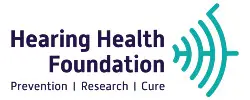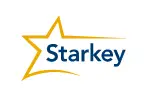Introduction
As we gracefully age, we’re often greeted by unexpected guests; some of them may be wonderful like the joy of spending time with grandchildren, while others, like conductive hearing loss, can be quite unwelcome. Conductive hearing loss refers to problems with conducting sound waves through the outer ear, tympanic membrane (eardrum), or middle ear. It’s not merely about hearing less; it’s about a vital connection to the world being weakened. This blog aims to shine a light on the different aspects of conductive hearing loss, how various medical professionals play a role in managing it, and how one can adapt to these changes with dignity and courage.
With a respectful tone, this evergreen resource aims to provide seniors with conductive hearing loss and their loved ones, an all-inclusive and understanding guide. By involving a broad spectrum of professionals — from speech therapists and ENT specialists to pediatricians, vocational rehabilitation counselors, audiological scientists, and occupational therapists — we aim to holistically approach the issue of conductive hearing loss. Through this multipronged lens, we hope to empower you with knowledge, strategies, and a supportive community.
Before we start, it’s crucial to note that while this blog provides a thorough understanding, it doesn’t replace professional medical advice. If you or a loved one are experiencing hearing difficulties, please seek expert advice. Now, let’s dive deep into the world of managing and living with conductive hearing loss.
Tweak Digital Hearing Amplifier
Experience the epitome of sophisticated sound with Tweak, the revolutionary device that brings a new dimension to your auditory experience. Harnessing the power of innovative patented technology, Tweak offers you the freedom to fine-tune your hearing with a diverse range of amplification options. Whether you prefer a subtle enhancement or a more pronounced boost, Tweak empowers you to effortlessly customize your acoustic world.
Crafted with meticulous care and expertise, Tweak represents the brilliant collaboration between an esteemed audiologist and a team of dedicated acoustic engineers. Their collective passion for impeccable sound quality shines through in every detail of this remarkable device. Designed to elevate your hearing capabilities across any environment, Tweak utilizes cutting-edge technology to ensure that you can fully engage with the sounds that matter most to you.
Unlock the extraordinary potential of affordable sound quality with Tweak. By leveraging the latest advancements in digital technology, this ingenious device delivers an auditory experience that rivals that of prescription hearing aids. With premium-grade components at its core, Tweak offers you uncompromising performance without breaking the bank. Immerse yourself in a world of enhanced sound, where clarity and richness seamlessly merge to create an exceptional listening experience.
Speech Therapists and Conductive Hearing Loss How They Help
Speech therapists, also known as speech-language pathologists, play a significant role in helping seniors with conductive hearing loss. They work tirelessly to improve communication challenges, which arise due to the altered perception of sound. Their primary goal is to enhance speech understanding and language processing, ensuring that their clients can effectively communicate their thoughts and feelings despite the hearing impairment.
Take, for example, the case of Mr. Anderson, a 70-year-old retired teacher who began struggling with conductive hearing loss. He had difficulty conversing with his family and students, often misinterpreting what they said. With the assistance of a dedicated speech therapist, Mr. Anderson learned various coping strategies such as lip reading and identifying non-verbal cues. He regained confidence in his communicative abilities, improving his quality of life significantly. This real-life example underscores the instrumental role speech therapists play in supporting individuals with conductive hearing loss.
The Role of an Ear, Nose, and Throat Specialist in Conductive Hearing Loss Treatment
When it comes to managing conductive hearing loss, an Ear, Nose, and Throat (ENT) specialist is a vital part of the treatment process. These highly trained professionals have an in-depth understanding of the anatomy and functioning of the ear, enabling them to diagnose and treat issues that lead to hearing loss.
Let’s consider the case of Mrs. Jones, a 72-year-old woman suffering from recurring ear infections, leading to conductive hearing loss. When she consulted an ENT specialist, the doctor was able to diagnose her condition and propose a tailored treatment plan. After undergoing an effective treatment, Mrs. Jones found her hearing vastly improved. Her experience underscores the importance of seeking expert medical advice from an ENT specialist when dealing with conductive hearing loss.
Perspective of a Pediatrician on Child Conductive Hearing Loss
While our focus is seniors with conductive hearing loss, it’s important to understand that this condition can affect individuals of all ages, including children. Pediatricians play a crucial role in early detection and management of conductive hearing loss in children. Their perspective on the issue is essential, as children’s hearing health greatly impacts their language development and academic success.
A pediatrician’s routine check-ups are often the first line of defense. They keep an eye out for signs of hearing problems during developmental assessments. If conductive hearing loss is suspected, the pediatrician would then refer the child to a pediatric audiologist for more comprehensive testing.
Consider the case of 7-year-old Lily, who was having trouble keeping up at school. Her grades were falling, and she seemed inattentive in class. A keen-eyed pediatrician noticed her symptoms during a routine checkup and recommended a hearing test, which diagnosed Lily with conductive hearing loss. Early detection and treatment helped Lily improve not just her academic performance but also her social interactions. This story illustrates how pediatricians provide invaluable insights and support when it comes to managing child conductive hearing loss.
Working with a Vocational Rehabilitation Counselor for Conductive Hearing Loss
Vocational rehabilitation counselors work tirelessly to help individuals with disabilities, including conductive hearing loss, maintain or regain their independence and employability. They provide a wide range of services, from career counseling and job placement to independent living skills training and assistive technology training.
For example, consider the case of Mr. Smith, a 65-year-old gentleman who started experiencing conductive hearing loss. As a customer service representative, his hearing loss was affecting his job performance. Through the help of a vocational rehabilitation counselor, he was able to access the necessary accommodations, including assistive hearing technology and voice-to-text software. As a result, Mr. Smith could continue working and living independently, showcasing the vital role vocational rehabilitation counselors play.
An Audiological Scientist’s Take on Conductive Hearing Loss Research
In the fight against conductive hearing loss, audiological scientists are at the forefront. Their research is continually pushing the boundaries of our understanding of the ear and hearing loss. They work on developing new technologies, treatment methods, and preventative measures.
Take, for example, the development of bone conduction hearing aids. Audiological scientists studied how sound waves could be transmitted directly to the inner ear through the bones of the skull, bypassing the outer and middle ear. This research has led to a revolutionary hearing aid design that has significantly improved the lives of people with conductive hearing loss.
How Occupational Therapists Assist Individuals with Conductive Hearing Loss
Occupational therapists (OTs) play an invaluable role in helping individuals with conductive hearing loss navigate their daily lives. They focus on promoting health and well-being through occupation, the daily activities that individuals engage in.
Consider Mrs. Brown, a 75-year-old woman with conductive hearing loss who was struggling with daily tasks due to her hearing impairment. An occupational therapist worked closely with her, suggesting home modifications like installing flashing light alarms and using a telephone amplifier. The OT also trained her in using hearing aids and other assistive devices, improving her ability to communicate and engage in her daily activities independently.
Conclusion
Conductive hearing loss might feel overwhelming, especially in our senior years, but understanding its intricacies and the resources available can significantly reduce the struggle. Across a spectrum of professionals, we’ve seen how each one brings unique expertise to the table, aiding in managing and living with conductive hearing loss.
Speech therapists work towards enhancing speech understanding and language processing, ensuring effective communication. ENT specialists play a vital role in diagnosing and treating underlying issues causing conductive hearing loss. Pediatricians, though primarily dealing with children, form the first line of defense against early-onset conductive hearing loss.
Vocational rehabilitation counselors help individuals maintain or regain their employability and independence. Audiological scientists push the boundaries of our understanding, developing new technologies and treatment methods. Finally, occupational therapists work to ensure individuals with conductive hearing loss can navigate their daily lives with ease.
Despite the challenges, it’s essential to remember that you are not alone. There are numerous professionals ready to assist and a multitude of strategies available to manage conductive hearing loss. Life may have turned down the volume, but with the right support and tools, you can still enjoy the symphony it has to offer.
In conclusion, dealing with conductive hearing loss as a senior doesn’t mean losing out on life’s wonderful sounds. By understanding the roles of various professionals and employing their help, one can effectively manage and live a fulfilling life despite the condition. After all, every challenge we overcome adds to the music of our life story.

Untold Stories from the Frontline of Conductive Hearing Loss
Navigating conductive hearing loss? Gain unique insights from the frontline professionals – audiologists, otologists, psychologists, speech therapists, and ENT specialists, as they share their day-to-day experiences.

Untold Stories from the Frontline of Conductive Hearing Loss
Navigating conductive hearing loss? Gain unique insights from the frontline professionals – audiologists, otologists, psychologists, speech therapists, and ENT specialists, as they share their day-to-day experiences.






